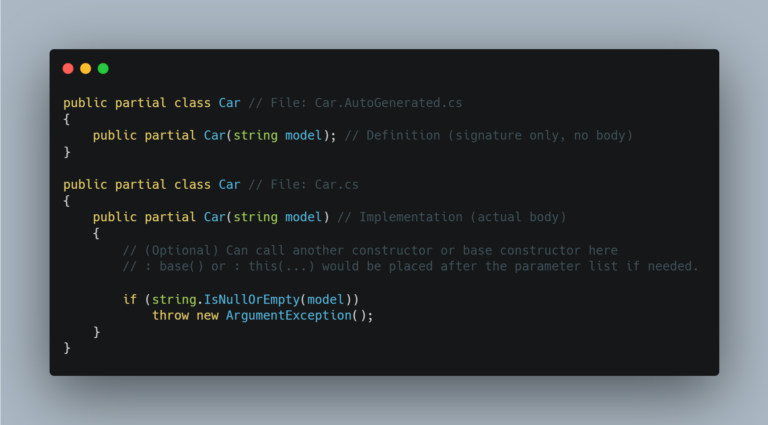C# 8.0 Null-coalescing assignment ??=
The operator enables you to assign the right-hand operand value to the left-hand operand only if the left-hand operand value evaluates to null.
Let’s take a very basic example:
int? i = null;
i ??= 1;
i ??= 2;
Code language: C# (cs)In the example above we declare a nullable int variable i and then make two null-coalescing assignments on it. During the first assignment i will evaluate to null, which means that i will be assigned the value of 1. On the next assignment i will be 1 – which is not null – so the assignment will be skipped.
As expected, the right-hand operand value will only be evaluated if the lef-hand operand is null.
int? i = null;
i ??= Method1();
i ??= Method2(); // Method2 is never called because i != null
Code language: C# (cs)Use cases
The operator helps simplify the code and make it more readable in situations where you would normally go through different if branches until a certain variable’s value is set.
One such example could be caching. In the example below, the call to GetUserFromServer would only be made when the user is still null after attempting to retrieve it from cache.
var user = GetUserFromCache(userId);
user ??= GetUserFromServer(userId);
Code language: C# (cs)